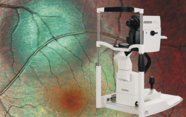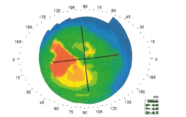The Other Virus
Do we have any ammunition that can shoot down misleading and dangerous claims?

I doubt there is a person reading these words who has not, at times, felt stressed and anxious over the past few months. Supposed to be The Year of the Ophthalmologist and a celebration of eye care, the year 2020 had other plans – and made us cancel most of ours. Unfortunately, as Viren Swami and colleagues have shown, stress is a predictor of believing conspiracy theories and misinformation (1).
The widespread use of social media – where anyone can post an opinion (whatever their qualifications) – and the current political discourse have been blamed for false claims and misleading stories being shared en masse. And the pandemic has really added fuel to the fire.
As Timothy Melley wrote in “Empire of Conspiracy,” when people feel they are losing control over their lives, they may develop “agency panic” – a belief that they are not being told the truth about the reality they’re living in; they may feel that their autonomy is being taken away (2). Faced with an invisible enemy, tangible effects of the climate emergency in the form of fires devastating Australia and the USA, and worldwide protests, some choose to “prove” their free agency by believing and spreading misinformation – and lots of it (3).
Sheraz Daya, in a fascinating discussion among leading refractive experts (here), says that all patients who enter his practice abide by the mask-wearing rule, but it is not unusual to meet people who question control measures, transmission routes, and mortality figures. Have you come across them in your practice? Do you engage with them? Do you feel like you know how to debunk the myths?
Misinformation can be reduced if we get ahead of the game. We must aim to actively present scientific evidence before people come across misrepresentations, frequently correct false claims, and offer actual or more probable alternative explanations (4, 5). Easy-to-understand information that is repeated often tends to stick with people. Creating a safe environment, putting the patient in control as much as possible, and using humor to increase positive emotions can reduce belief in conspiracy theories (6).
There are no easy solutions, but active engagement and the ability to carefully listen can slowly break down the wall of misinformation. Dialog matters now more than ever.
- V Swami et al., “Putting the stress on conspiracy theories: examining associations between psychological stress, anxiety, and belief in conspiracy theories,” Pers Individ Dif, 99, 72 (2016).
- T Melley, Empire of Conspiracy: The Culture of Paranoia in Postwar America, Cornell University Press: 2000.
- MS Islam et al., “COVID-19-related infodemic and its impact on public health: a global social media analysis,” Am J Top Med Hyg, [Epub ahead of print] (2020). PMID: 32783794.
- JW van Prooijen, KM Douglas, “Belief in conspiracy theories: basic principles of an emerging research domain, Eur J Soc Psychol, 48, 897 (2018). PMID: 30555188.
- G Orosz et al., “Changing Conspiracy Beliefs through Rationality and Ridiculing,” Front Psychol, 7, 1525 (2016). PMID: 27790164.
- JW van Prooijen, M Acker, “The influence of control on belief in conspiracy theories: conceptual and applied extensions”, Appl Cogn Psychol, 29, 753 (2015).

Having edited several technical publications over the last decade, I crossed paths with quite a few of Texere's current team members, and I only ever heard them sing the company's praises. When an opportunity arose to join Texere, I jumped at the chance! With a background in literature, I love the company's ethos of producing genuinely engaging content, and the fact that it is so well received by our readers makes it even more rewarding.













